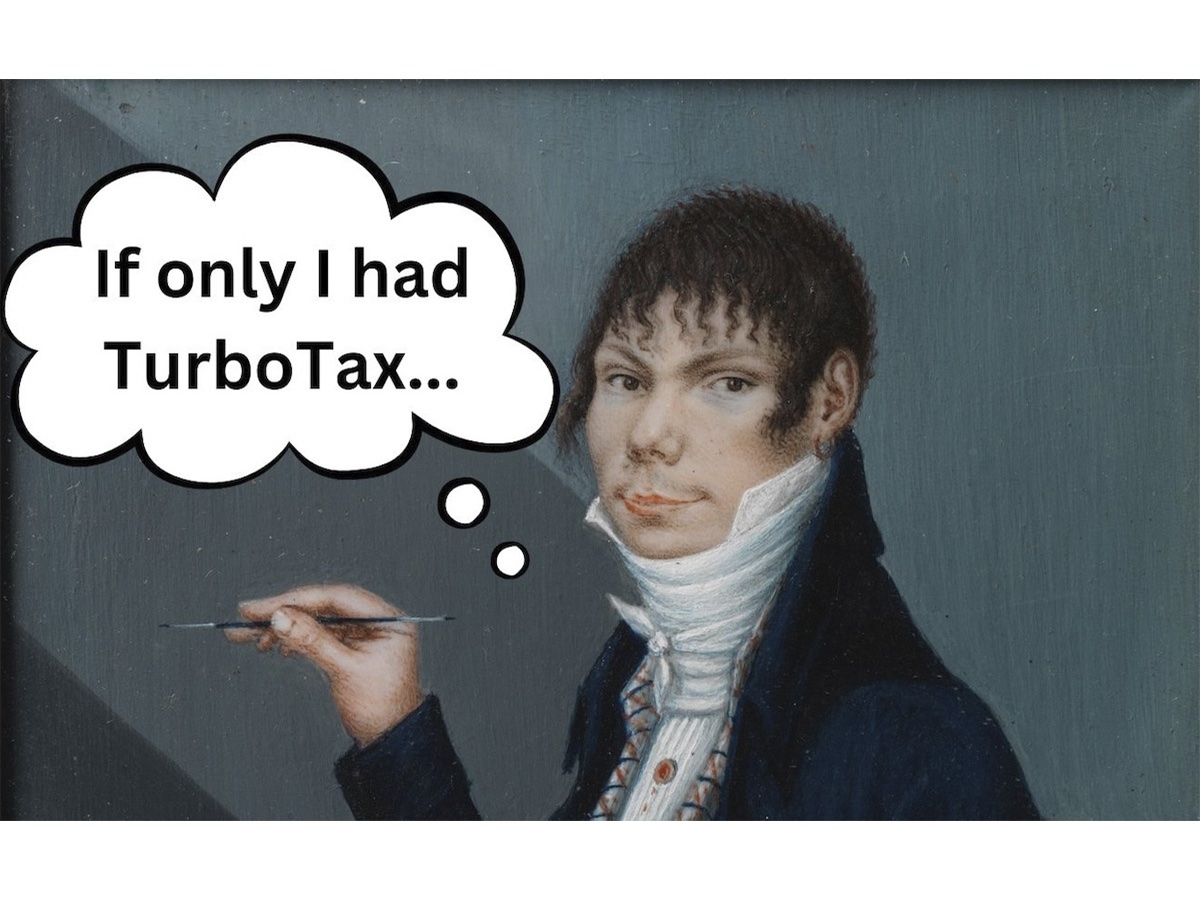As a working artist and tax professional, the most common tax mistake I see in the American art world is galleries incorrectly issuing 1099 forms to their artists for sales. Questions about the form are popping up this week in particular, as galleries and artists alike scramble to meet the Friday, January 31 deadline to issue 1099s. So what should galleries do, and what should artists do if they receive a 1099 in error?
First, let’s review the basics. The 1099 form is a tax document for reporting income. There are lots of types, but the ones in question here are called 1099-NECs — indicating “Non-Employee Compensation,” for individuals doing contract work. The basic rule is that if you compensated anyone over $600 during the calendar year for services rendered to your business, you owe them a 1099-NEC, reporting the total amount you paid. The payer must postmark 1099-NECs by January 31, so most people are receiving 1099-NECs they are owed this week.
Here’s why galleries aren’t supposed to issue 1099s to their artists: The operative word in the IRS’s instructions is that this reporting is for “services.” To clarify this further, the instructions on the form note that 1099-NECs are not to be issued for merchandise.
If you answered phones for your gallery, or did art installation work, then yes, they should issue you a 1099-NEC for that. But though you may not think of it this way, your artwork counts as “merchandise” to your gallery.
So, as an artist, what should you do?
First, remember that all your income from your art practice must be reported, by law. Whether or not you received a 1099 for it, you still need to report the income on your tax return. Much of your income as an artist will never show up on any tax reporting document, whether because of art sales that don’t require a 1099 and services you performed for less than $600, or because you accidentally used Venmo or Paypal on the “friends and family” setting when it should have been Paypal Business. But the law still requires you to track, tally, and report it. And not to put too fine a point on it, but if you underreport your income to the IRS by more than 25%, you’re committing a felony.
The answer to the question of what you should do if you receive the incorrect 1099 from your gallery, then, is actually simple. If you get a 1099 from your gallery reporting your art sales, you’ll simply report that same income exactly as you would report income for which you did not receive a 1099.
I want to note that most galleries are trying to do the right thing, and tax laws can be confusing. A gallery that issues you a 1099 in error is generally a conscientious one, aiming to get it right. Many people are confused about 1099 reporting rules, especially because they’re often issued by small businesses and sole proprietors without good tax guidance.
A tip that I share with my clients is to track your total art income, as the law requires, but then divide this amount into two categories: income reported to you on a 1099 and income not reported to you on a 1099. If you get a 1099 that you weren’t expecting to get, you move that chunk of income over to the 1099 column, and out of the non-1099 column. These columns should always add up to your total income, but the columns can help you remember that every bit of income should be in one column only. None should be in both, nor should any be missing altogether.
When you do your taxes, double-check that your 1099 and non-1099 income add up to the total income that your bookkeeping reflects. This confirmation can ensure that you don’t accidentally double-report any income (and, consequently, pay double the taxes on that income), or leave off income that you’re required to report (breaking the law).
And don’t forget that if you paid anyone for services in your own art practice in 2024, you also need to issue them a 1099 postmarked by this Friday, January 31. The penalties for not issuing the 1099s you are required to just increased this year, and they begin on Saturday.
Editor’s Note: True tax advice is a two-way conversation, and your accountant needs to hear your full situation to apply the rules correctly in your case. This post is meant for general information only, and is not individual tax advice. Please don’t act on this alone.

